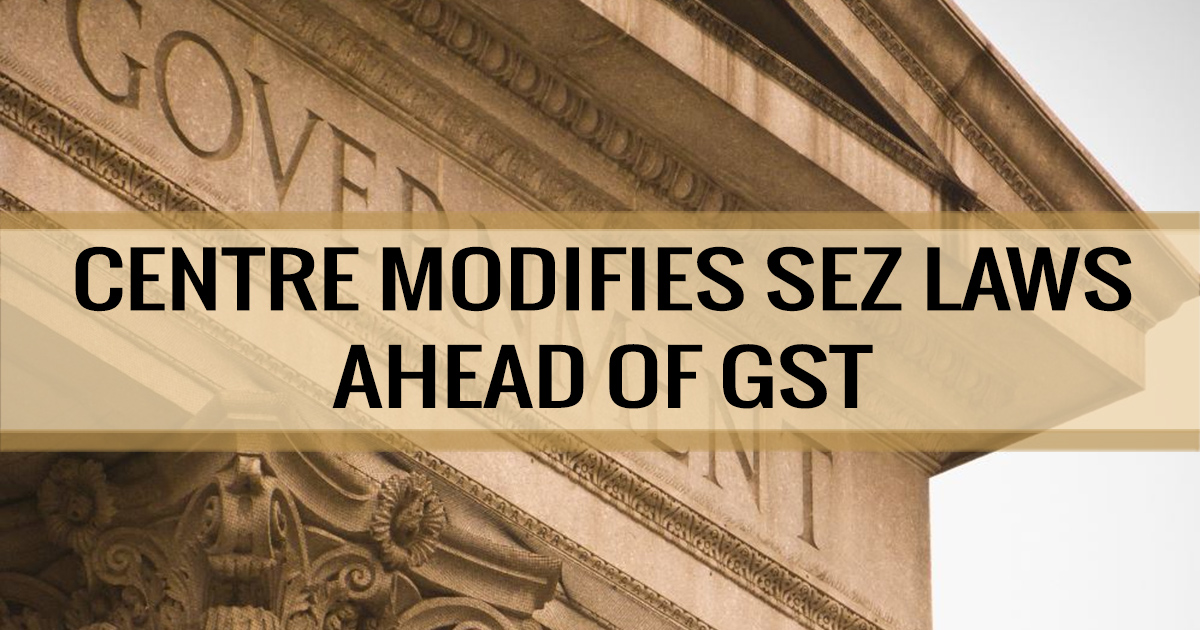
The centre and its financial department are gearing up for the upcoming GST regime and some of the first reformations are being taken into the SEZ Zone acts. Banikinkar Pattanayak, a government official said that “The government will soon tweak certain fiscal provisions of the special economic zones (SEZ) Act, as it gears up to introduce the goods and services tax (GST) regime in the country.”
Revenue secretary Hasmukh Adhia chaired a meeting, attended by commerce secretary Rita Teaotia on November 9, as of now the SEZ act has been influenced by various direct taxes like MAT and DDT. The officials said that “Sections 26 and 30 of the SEZ Act are set to be amended suitably in accordance with the GST law to ensure various duty exemptions to such designated enclaves in the new tax regime as well.”
A senior taxation official threw some light over the news laws and their effects, “Section 26 C, E and G of the SEZ Act are among the key fiscal provisions that will be tweaked, Section 26C deals with exemption from any excise duty (under the Central Excise Act, 1944 or the Central Excise Tariff Act, 1985) on goods brought from the domestic market to an SEZ to carry out authorized operations by the developer.”
“Similarly, Section 26 E provides for exemption from the service tax (under chapter-V of the Finance Act, 1994) on relevant services provided to a SEZ developer. Section 26 G offers tax exemption to SEZ developers from the sale or purchase of goods other than newspapers (under the central sales tax Act, 1956).”
Rahul Gupta, chairman of the Export Promotion Council for EOUs and SEZs (EPCES), said the definition of exports in the model GST law need to synchronize with the SEZ Act to avoid any confusion or dispute, that the issues of SEZs will be taken up in the meeting of GST Council. Exports from SEZs dropped 3.3% in 2015-16, recovering from a near 11% fall in the previous year. The country’s overall goods exports shrank a massive 16% last fiscal.”
As far as talking about the statistics, the government had imposed the minimum alternate tax (MAT) on SEZ developers and units and the dividend distribution tax (DDT) on developers in 2011-12. Before the MAT and the DDT were imposed, the growth in exports from SEZs was as high as 121% (2009-10) and 43% (2010-11), far exceeding the rise in the country’s overall goods exports for these years.








